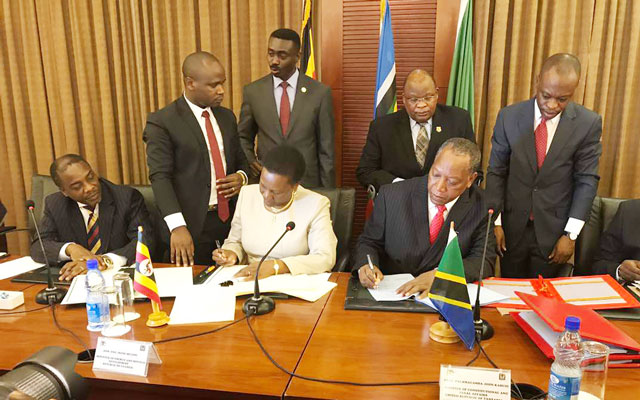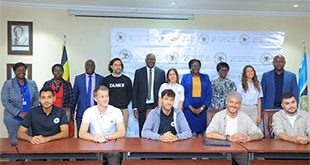
Indeed, the Knight Frank reporting showed that in 2018 when the hopes for reaching the Final Investment Decision (FID), which technically means oil players are confident to release money and start actual investments, faded, many upscale apartments fell vacant – as many expatriates went back home because oil companies could not keep them around when they were redundant.
Yet if there is one industry whose appetite to cash in on the oil and gas industry ended in tears, it is the logistics sector.
Players entered a partnership with global companies, they bought assets like the transport trucks, ridge carriers and other assets. Most of these assets are either rusting away or have been sold at less than half the price they acquired them at.
Initially, during the exploration time, many cashed in, according to different players. A single truck would be paid up to USD 1,000 per trip. Things were looking up and many invested before everything came crumbling, according to Hussein Kiddede, the Uganda Freight Forwarders Association boss.
He told URN “it has been a painful journey.”
For some, when the sector slowed, they took their trucks to South Sudan, Kiddede said. However, this was short-lived as in 2015, the fighting between rebels and the government broke out again. They hauled their assets back to Uganda for dead. For many, the assets have been redundant as bankers came after the owners.
Hussein said an asset of USD 150,000 was being sold at USD 40,000.
Eng. Patrick Bantumbya, the director of MBW Consulting Ltd said while consultants as himself were not as hurt as those that bought physical assets, they have been forced to lay off workers and rollback on capacities they were developing for the sector.
The government of Uganda acknowledges the delay has been a painful feat for many companies. Bank of Uganda advises companies to renegotiate their terms with their bankers.
The Executive Director for Research Adam Mugume said they were aware of the pain oil and gas suppliers are going through. He advised suppliers to re-negotiate terms of their loans since even when there is the uncertainty, the oil will eventually come out of the ground.
Kiddede, however, said it was not practical that suppliers can renegotiate bank loans. He said politicians and public officials were making political statements but impossible to implement, arguing that banks can’t wait for ten years to get their money back.
For the government and some suppliers, the delay has come with costs but some opportunities too.
On the cost, for instance, the workers laid off by different organizations means there was tax foregone on the workers’ income. Crystal Advocates has for instance calculated that layoffs and foregone tax in corporation earnings could have cost the government up to USD 300 million in taxes annually.
On the good side, the government argues that it was able to enact necessary laws for the industry, renegotiate some agreements and develop capacities to take on complex things, including tax disputes.
Joe Oloka Onyango, a law academic at Makerere University, wrote recently that the legal regime in Uganda appears to be determined to avoid the debt trap associated with oil-producing states in Africa.
But also, he says, regulation placed in different government agencies means it will be hard for one agency to mismanage the resource.
Hoteliers in Hoima say the delay has helped them ready themselves.
Richard Ojiambo, the manager of Kontic hotel, said they have managed to construct more rooms and a conference centre in preparation for the sector. He said oil and gas have become important to constitute at least 30 per cent of the hotel’s revenues.
At Glory Summit hotel, the owners said that while the visitors – mostly workers of oil companies’ workers and contractors –have slowed down over the years with 2019 seeing the biggest, they are more prepared to handle big orders.
It remains as uncertain as ever on when key projects can finally kick-off. And for EviroServ, much as other companies, every month that production is delayed is a cost on them. Even with no work, it has to buy reagents, update certifications, and fly in expatriates to make sure machines remain functional.
*****
URN
 The Independent Uganda: You get the Truth we Pay the Price
The Independent Uganda: You get the Truth we Pay the Price

